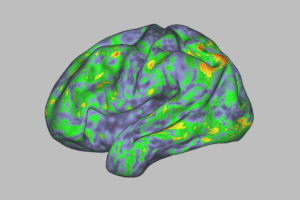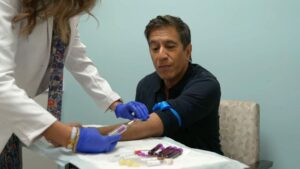People who consume psilocybin-containing mushrooms — otherwise known as magic mushrooms — typically undergo a surreal experience in which their sense of space, time and self is distorted. Advocates have long argued that, under the right conditions, psychedelic experiences can alleviate mental distress, and a smattering of scientific studies suggests they may be right. Understanding […]
Psilocybin generates psychedelic experience by disrupting brain network (Links to an external site)








